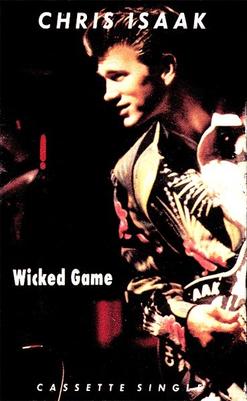
"Wicked Game" is a song by American rock musician Chris Isaak, released from his third album, Heart Shaped World (1989). Released as a single in July 1989, it became a sleeper hit after being featured in the 1990 David Lynch film Wild at Heart, starring Nicolas Cage and Laura Dern. Lee Chesnut, an Atlanta radio station music director who loved David Lynch films, began playing the song, and it quickly became an American top-10 hit in January 1991, reaching number six on the Billboard Hot 100. Internationally, the single became a number-one hit in Belgium and reached the top 10 in several other nations.

Heart in Motion is the ninth studio album by Christian singer-songwriter, Amy Grant, released on March 5, 1991. Unlike Grant's previous albums, Heart In Motion contains pop songs mingled with Christian values. The album features Grant's biggest worldwide hit, "Baby Baby" and was certified 5× platinum in the United States, selling over five million copies.
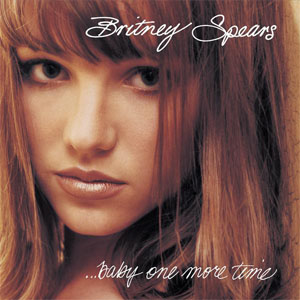
"...Baby One More Time" is the debut single by American singer Britney Spears from her debut studio album of the same title (1999). It was written by Max Martin and produced by Martin and Rami. Released on September 29, 1998, by Jive Records, the song became a worldwide hit, topping the charts in over 20 countries, including the United States and the United Kingdom, where it earned quintuple and triple-platinum certifications from the Recording Industry Association of America and the British Phonographic Industry (BPI), respectively, and was the latter's best-selling single of 1999. The song is one of the best-selling singles of all time, with over 10 million copies sold.

"Where Do Broken Hearts Go" is a song recorded by American singer Whitney Houston for her second studio album, Whitney (1987). It was released as the fourth single from the album on February 25, 1988. The song was written by Frank Wildhorn and Chuck Jackson and produced by Narada Michael Walden. A pop ballad set in the key of D major, the record is about someone seeking for a former lover to return after a breakup. Upon its release, the song received mixed reviews from critics.

"All the Man That I Need" is a song written by Dean Pitchford and Michael Gore. The song was first recorded as "All the Man I Need" by Linda Clifford for her album I'll Keep on Loving You (1982). In 1990, American singer Whitney Houston had a number-one multiple chart hit with this song, recorded as "All the Man That I Need", from her third album, I'm Your Baby Tonight (1990).

American singer Amy Grant has released 20 studio albums, 11 compilation albums, 5 live albums, and 84 singles. Considered one of the pioneers in the contemporary Christian music genre, Grant was also the first major Christian artist to successfully cross over into the mainstream.
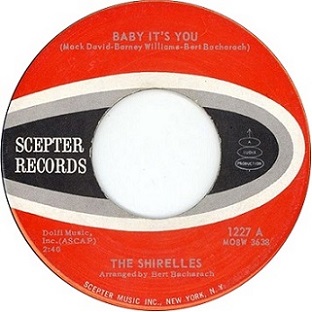
"Baby It's You" is a song written by Burt Bacharach (music), Luther Dixon, and Mack David (lyrics). It was recorded by the Shirelles and the Beatles and was a hit for both. The highest-charting version of "Baby It's You" was by the band Smith, who took the track to No.5 on the US charts in 1969.

"It's in His Kiss" is a song written and composed by Rudy Clark. It was first released as a single in 1963 by Merry Clayton that did not chart. The song was made a hit a year later when recorded by Betty Everett, who hit No. 1 on the Cashbox magazine R&B charts with it in 1964. Recorded by dozens of artists and groups around the world in the decades since, the song became an international hit once again when remade by Cher in 1990.

"Something to Talk About" is a song written by Canadian singer-songwriter Shirley Eikhard and recorded by American singer Bonnie Raitt for her 1991 album Luck of the Draw. It was serviced to US radio on June 3, 1991. Two single versions were released: a 7-inch single with the B-side "One Part Be My Lover" and a 12-inch single with these two songs and "I Ain't Gonna Let You Break My Heart Again". In turn, this song was included on the EP version of Raitt’s 2000 single of "The Fundamental Things" taken from her 1998 album Fundamental. It was also included in 2003’s greatest hits compilation The Best of Bonnie Raitt. Live versions appear on 1995's Road Tested and 2006's Bonnie Raitt and Friends.
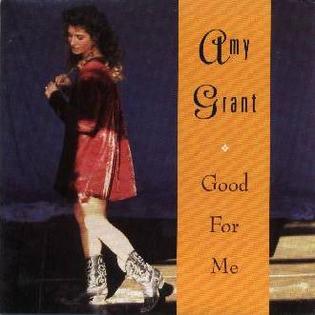
"Good for Me" is a song by American singer-songwriter Amy Grant, released as the sixth overall single from her Heart in Motion album. It was her fourth consecutive top-five Adult Contemporary single and top-10 Hot 100 single in the United States, reaching numbers four and eight, respectively. In the United Kingdom, it peaked at number 60.
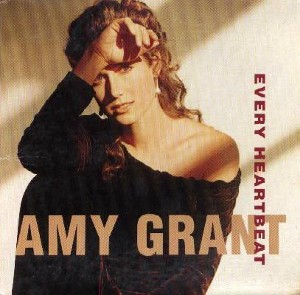
"Every Heartbeat" is a song by American Christian singer Amy Grant. It was released in June 1991 by A&M Records as the third single from her ninth studio album, Heart in Motion (1991), though it was the second from the album to be released to mainstream pop radio. It reached No. 2 on the US Billboard Hot 100 and on the Adult Contemporary chart for one and six weeks, respectively. Charlie Peacock wrote the song's music and chorus lyrics, with Grant and Wayne Kirkpatrick composing the remaining lyrics.
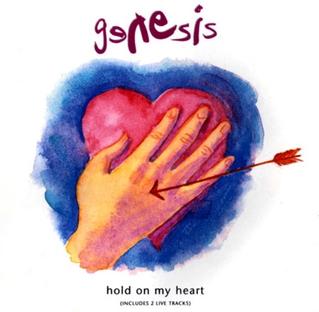
"Hold on My Heart" is a song by English rock band Genesis from their 14th studio album, We Can't Dance (1991). The ballad was released as the album's third single on 6 April 1992. The song reached number one on the Canadian RPM 100 Hit Tracks chart, the RPM Adult Contemporary chart, and the US Billboard Adult Contemporary chart, as well as number 12 on the Billboard Hot 100. In the band's home country, the song peaked at number 16 on the UK Singles Chart.

"Looking for a New Love" is a song by American dance-pop singer Jody Watley. It was released in January 1987 as the first single from her eponymous debut album. The song reached number two on the US Billboard Hot 100 and charted in several countries worldwide, peaking at number one in Canada. Watley re-recorded and re-issued the song in various remixes in 2005.

"Our Day Will Come" is a popular song composed by Mort Garson with lyrics by Bob Hilliard. It was recorded by American R&B group Ruby & the Romantics in early December 1962, reaching #1 on the Billboard Hot 100.

"Where Does My Heart Beat Now" is a song performed by Canadian recording artist Celine Dion for her ninth studio album and debut English-language album, Unison (1990). It was released by Columbia Records as the third single from Unison in Canada on 1 October 1990. It was also issued as the lead single in the United States in late 1990, and in other parts of the world in early 1991. "Where Does My Heart Beat Now" was written by Robert White Johnson and Taylor Rhodes in 1988, and recorded by Dion one year later. The song was produced by Christopher Neil. Dion premiered the song at the Eurovision Song Contest 1989 in Switzerland, where she performed it along with her 1988 winning song, "Ne partez pas sans moi".

"That's What Love Is For" is a song by Christian music/pop music-crossover singer Amy Grant. It was written by three-time Grammy-Award winner Michael Omartian, Mark Mueller and Amy Grant and produced by Omartian. It was the third Billboard Hot 100 Top 10 pop single from her 5× platinum-selling album Heart in Motion and the only one from the album to be released to both Pop and Christian radio.

"I Don't Wanna Fight" is a song by American singer and actress Tina Turner. The track was written by British singer Lulu, her brother Billy Lawrie, and Steve DuBerry. The song was first offered to singer Sade, who sent it on to Turner. Turner recorded it in 1993 as part of the soundtrack for her autobiographical film, What's Love Got to Do with It. Lulu's version appears as a B-side to her 1993 single "How 'Bout Us" as well as on the 2003 album The Greatest Hits.

"Lucky One" is a single by American Christian music singer Amy Grant. It was released as the first single from her 11th studio album, House of Love (1994), in August 1994. The song reached number two on the US Billboard Adult Contemporary chart and number 18 on the Billboard Hot 100, giving Grant her last top-20 hit in the United States. It also peaked at number four in Canada and reached the top 75 in Germany and the United Kingdom.

"House of Love" is a song by American Christian music singer Amy Grant, recorded as a duet with country singer Vince Gill. It was released in November 1994 as the second single from her House of Love album in the United States and the fourth and final single from the album in the United Kingdom.
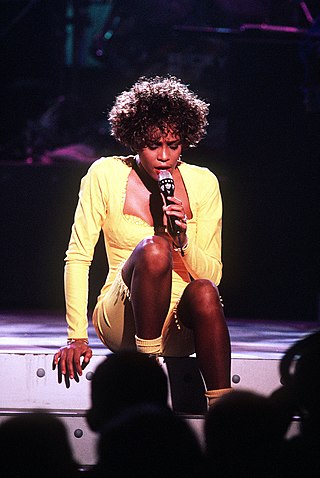
American singer Whitney Houston, known as "The Voice", released 57 singles as a leading artist and 4 as a featured artist. Houston is one of the best-selling music artists of all time, with over 220 million records sold worldwide. In the United States, Houston amassed 11 Billboard Hot 100 number-one singles, all of whom have been certified either gold, platinum, multi-platinum or diamond by the Recording Industry Association of America and was one of a selected group of artists to have a top ten single in the Billboard Hot 100 in four different decades. She is currently ranked in seventh place of the artists with the most number one singles in the history of the Billboard Hot 100. Prior to the introduction of digital singles, Houston sold 16.5 million physical singles in the country, the most ever by a female recording artist. In October 2012, the Official Charts Company claimed Houston was the fourth biggest-selling female singles artist of all time with a sales total of 8.5 million singles in that country.


















